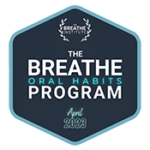Children who are physically and mentally challenged may not only have difficulty in performing daily routine activities, but may also be unable to efficiently maintain general and dental hygiene. These patients generally require ongoing assistance from a loved one or a caregiver to look after them. According to the American Academy of Pediatric Dentists, children with special healthcare needs include those that suffer from any kind of developmental, physical or cognitive disability that requires special arrangements for providing them with medical or dental treatment.

Who Can Treat Handicapped Children?
Seeking dental care for your child with a special need is not an easy task, since not every dental office contains the required arrangements to accommodate handicapped children, and not every dentist has the skill set required to treat a physically or mentally challenged child. Ask your current dentist or seek a pediatric dentist who is qualified and possesses the training to better assist your child with their dental needs.
Dental Problems Faced By Disabled Children
Physically challenged children may have limited motor skills, rendering them unable to perform routine dental care tasks such as tooth brushing, flossing and using a mouthwash. Similarly, mentally challenged individuals may lack the cognitive skills to efficiently take care of their dental needs in absence of a caregiver. Whatever the reason of disability, handicapped children are at an even greater risk than most children, of developing dental caries. In addition, most children are exposed to frequent gingival and periodontal problems as a result of heavy plaque and calculus deposition on the teeth. Soft tissue trauma and infections are very common among children with neuromuscular disabilities.
Behavioral Management of Disabled Children
Typically, children with special needs are highly apprehensive and anxious of the dental treatment. Hence, it is important for the child’s dentists or Pedodontists to be equipped with excellent communication and behavioral skills, and must form a bond with the child so that he or she can trust them with their personal space. You and your dentist shoud be present with your child during dental cleanings and procedures, and they should also be assured that the procedure will be painless and completed within a short term.
Medical Management of Disabled Children
Many disabled children can be at a greater risk of suffering from nutritional deficiencies due to their reduced cognitive skills and neuromuscular coordination, which in turn affects their feeding abilities. Some handicapped children are unable to take their diet through an oral route. Instead they may require a feeding tube or direct gastric feeding, and are at risk for malnourishment. Since there is a direct correlation between malnutrition and incidence of dental infections, your child’s dentist, in consultation with a dietician or a nutritionist, must look out for any signs of poor nutrition, along with the parent, to ensure that this isn’t a contributor to dental problems or any aspect of their health
Dental Management of Disabled Children
Dental procedures for handicapped children are usually performed under conscious sedation or general anesthesia, since they can quickly become restless or may have difficulty keeping their mouth open for an extended period of time. For you as the parent, it is advised to stay with your child in the dental office and give special attention to your child’s teeth at home. Supervise your child during brushing and flossing and ensure that he or she spits the toothpaste out after brushing, and does not swallow it. A toothpaste containing fluoride is beneficial for them in preventing the risk of caries and other dental problems.
A Final Word
Helping your special needs child can be challenging, so ensure that your child’s dentist and healthcare providers are not only aware of your child’s needs, but also of their insecurities and how they may better encourage your child and build trust with them. Do not hesitate to ask your dentist about their experience with treating children of physical and mental disabilities.










